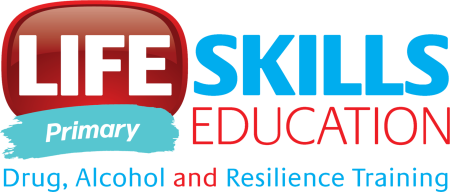
-
Our Graduates are:
-
5.4 times more likely to seek help when needed
-
3.4 times more skilled around communication and listening
-
2 times more likely to make safe and responsible choices
-
2.4 times more knowledgeable about drugs, alcohol and substance use/abuse
-
Our Graduates are: -
5.4 times more likely to seek help when needed
-
3.4 times more skilled around communication and listening
-
2 times more likely to make safe and responsible choices
-
2.4 times more knowledgeable about drugs, alcohol and substance use/abuse
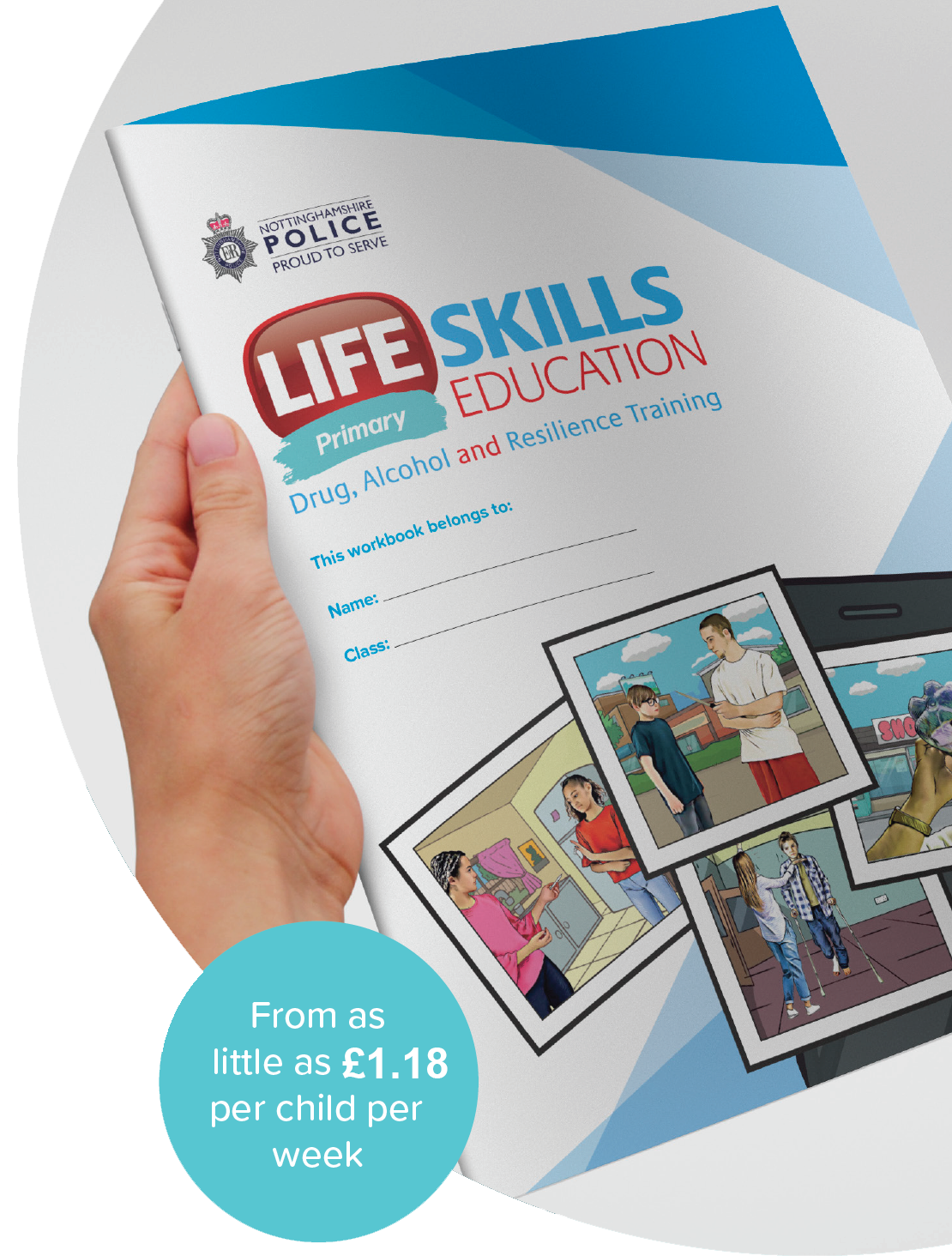
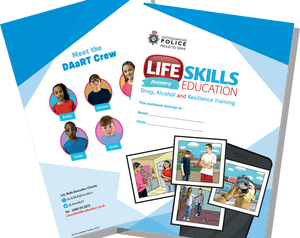 The Life Skills Education primary programme is delivered to year 5 and 6 students and is the refreshed and updated version of our successfully delivered and evaluated DARE Primary programme. (Nottingham University evaluation can be found here.)
The Life Skills Education primary programme is delivered to year 5 and 6 students and is the refreshed and updated version of our successfully delivered and evaluated DARE Primary programme. (Nottingham University evaluation can be found here.)
The programme will equip young people with a range of knowledge and skills which they can use as the transition to secondary and beyond.
Our aim is to offer schools a programme that compliments the work they are undertaking. All of our materials are age appropriate and we have worked hard to ensure that feedback from our customers, partners and those with real life experience have shaped the content of our programme.
We believe this is the best programme available to meet the requirements of the new curriculum and has links to a broader range of cross curricular subjects.
The DAaRT Crew

Independently Evaluated Download the PDF Evaluation
Quality Standards Monitoring View our teacher feedback
How much does it cost?
100% DAaRT Officer delivery |
£32.00 per child |
We deliver all of your programme. |
50/50 Shared delivery |
£25.00 per child |
We deliver 6 sessions, your class teacher delivers 5. |
Teacher Led Plus |
£12.00 per child |
Plus £124.00 (extra classes are £62.00 each). We deliver the first session and the graduation. |
Teacher Led |
£13.00 per child |
You deliver all of the Life Skills Primary Programme, we provide workbooks, namecards and certificates. |
Why choose Life Skills Primary?
Primary schools have a responsibility to ensure students leave fully equipped for transition to secondary school and all that entails and to ensure that they will be able to make safe and healthy choices.
Our programme will help schools to fulfil the requirements of the National Curriculum, in particular elements included in PSHE from 2020.
Children are extremely vulnerable to peer pressure, have little understanding of the facts about drugs and alcohol, or about the law and the consequences of carrying a knife or of treating others differently; they often do not communicate effectively, or manage risky situations successfully.
Knife crime has increased in recent years and incidents of hate crime are on the rise; the impact of drug and alcohol use is evident on the individual, family, community and society and can include low academic achievement, poor physical and mental health, crime and antisocial behaviour and domestic abuse. Early intervention using a programme which is proven to work can lessen the risks and can only be a benefit to all.
Teaching Methods
In order to ensure that the needs of all pupils are met we use workbooks, small and large group discussion, role play, quizzes, video, question and answer. Prior to the course beginning the DAaRT Officer will visit and discuss with the teacher the needs of each class. Videos can be subtitled where required.
Key Topics
- Illegal and legal drugs including alcohol, tobacco, solvents, prescription drugs.
- Hate crime covering difference, prejudice and respect
- Knife crime includes the law, safety and risks and consequences (links here to bottom of page subjects)
Overarching themes
- Responsibility
- Stress
- Confident communication
- Resistance strategies
- Pressure and peer pressure
- Becoming a good citizen
- Where to get help
At the end of the course the children write a DAaRT report in which they can reflect on what they have learned. This is often completed as part of a literacy lesson, with the class teacher.
The Life Skills Primary Programme ends with the graduation at week 11 when the children get an opportunity to show off all that they have learned to invited guests – which could be other classes, parents and carers or funders. Graduations can range from simple to very grand affairs and may include the reading of DAaRT reports, singing of the DAaRT song and maybe a play, a short sketch or poetry related to the learning that has taken place.
How does it work?
The Life Skills Primary programme runs over 11 weeks, with the last lesson being the graduation. Lessons last for one hour. Lessons can be delivered by our specially trained DAaRT Officers, a class teacher or a combination of the two.
Whichever option you decide upon, we will provide all the resources needed for the full course to be delivered including access to videos, online presentation and comprehensive lesson plans. For each child there will be a workbook, a name card, and a graduation certificate.
Before the Life Skills Primary programme begins you will be contacted by our DAaRT Officer who will discuss your requirements and plan how we will work with you in order to deliver the programme in your school. We will agree dates for the delivery of lessons and for the graduation and will offer a parent/carer briefing to enable parents/carers to be fully involved in the Life Skills Primary programme and to support their children during the course.
Meet the DAaRT Crew

Resources
Each student is given a workbook and they will meet the DAaRT Crew who are similar in age to your students. They appear and tell their stories in our videos and it is the job of the class to work with the DAaRT Officer and/or teacher to work through the difficulties that they manage to get themselves into, in order to recommend a responsible course of action.
Teaching methods
In order to ensure that the needs of all pupils are met we use workbooks, small and large group discussion, role play, quizzes, video, question and answer. Prior to the course beginning the DAaRT Officer will visit and discuss with the teacher the needs of each class. Videos can be subtitled where required.
The Life Skills Primary Programme Workbook
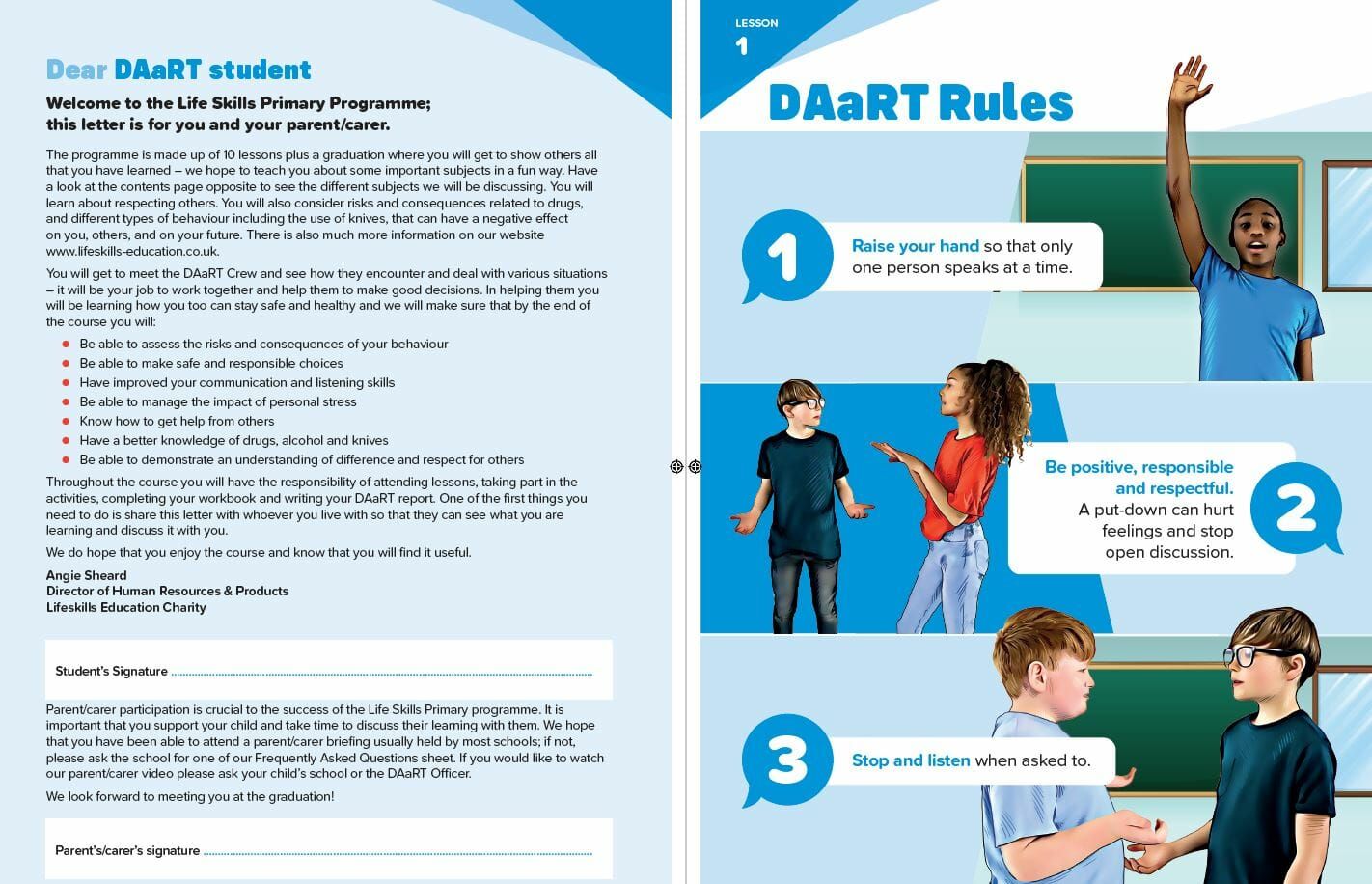
The DAaRT Classroom Rules
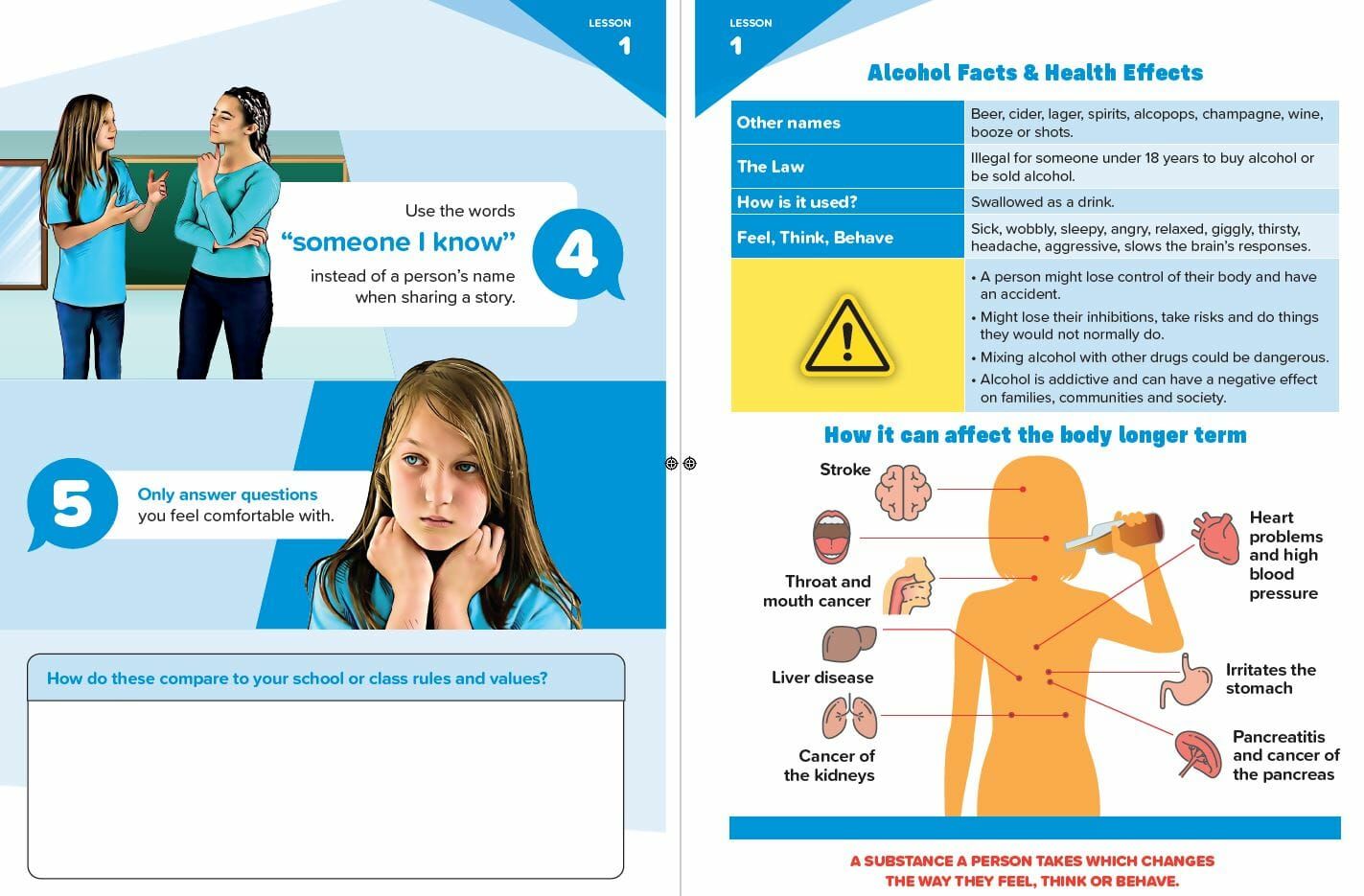
Alcohol Information Pages
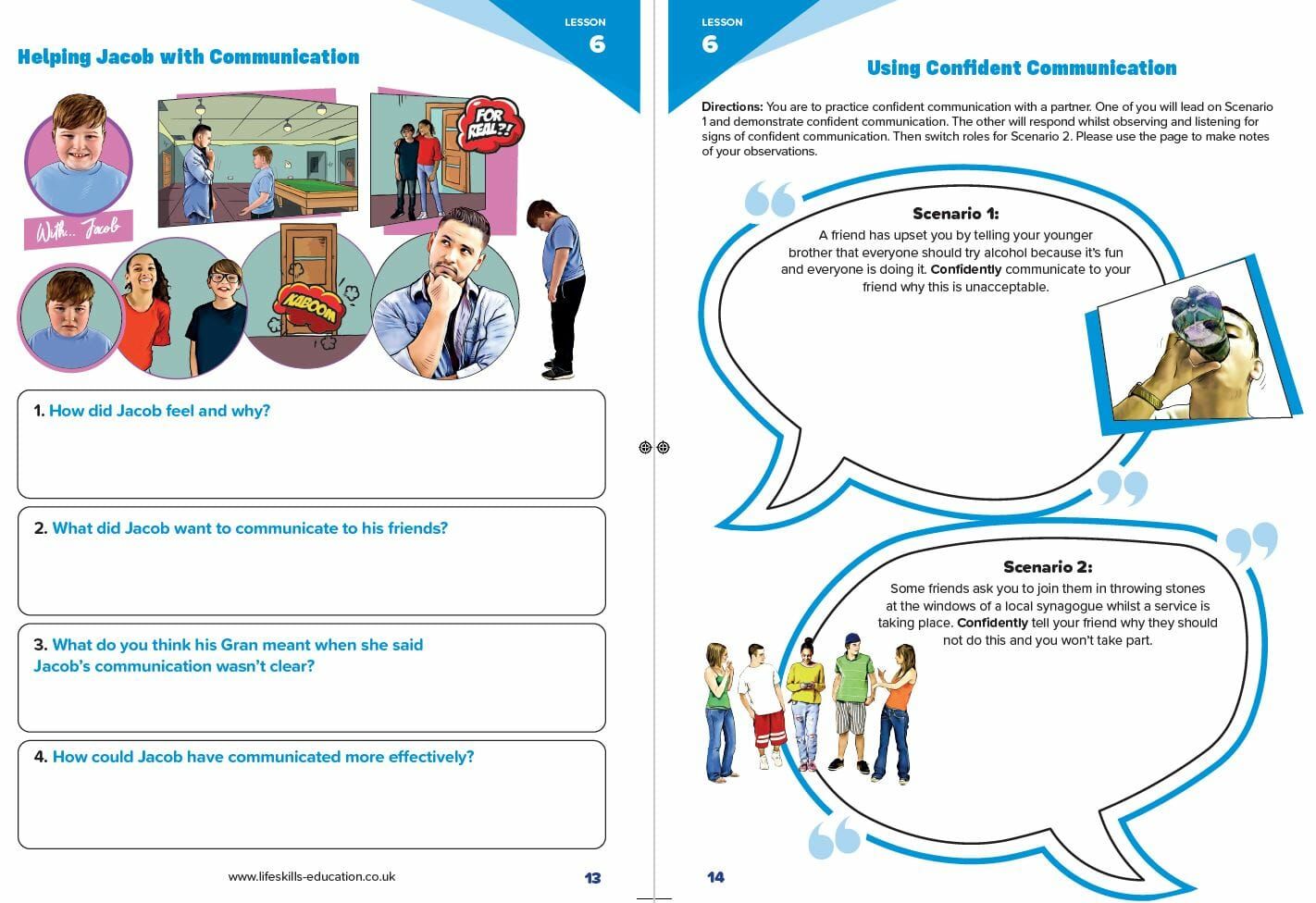
Role Play Exercise
The Videos
The Life Skills Primary Programme is underpinned by a series of videos, both filmed and animated, that help young people understand the role play scenarios so that they can resolve problems in a structured manor.
-
Meet the DARE Crew
-
Jackson has a Problem
SKILL DECISION MAKING MODEL
The programme utilises our unique SKILL DECISION MAKING MODEL which teaches young people to make safe and healthy choices, working through problems and issues one step at a time.
Teaching young people to consider a range of options, balance risk and consequences, be responsible, manage stress and resist pressure are all key to ensuring they develop into positive and proactive young adults who can adapt to life’s challenges and minimise the risky behaviour inherent in daily life.
Parental involvement
We encourage parents to be involved in our programme by attending a parent/carer information briefing at the beginning of the course, by encouraging and working with children on their course homework and by providing feedback on the course and attending the graduation. (no colour or highlight)
Quality Standards/Feedback
We welcome feedback on our programmes in order that we can improve the programme experience for all.
Students, parents and teachers are asked for their thoughts after each course and this is used in the development of our resources (link to quality assurance here).
The Life Skills Primary programme follows the quality standards developed by MentorAdepis (link here to MentorAdepis quality standards on web).
DAaRT Officers are highly trained, are visited in school once each term in order to ensure that delivery is to the highest of standards.
Safeguarding
Life Skills Education is committed to safeguarding children and young people and operate a safer recruitment policy. All of our staff have regular DBS checks and receive initial and ongoing safeguarding training. DAaRT Officers work with individual schools to ensure that all students are safeguarded and Life Skills Education will take any action required in order to fulfil this responsibility.
We have many schools who have been involved in over 10 iterations of our primary programme since delivery began in 1995. Many use our services year after year; this has enabled in excess of 400,000 young people to graduate and learn how to make better choices.
DAaRT Officers
We recruit and train all our or DAaRT Officers to a high standard.
All DAaRT Officers will have prior experience of working in an area relevant to the subject matter together with experience in supporting others through the learning process.
All DAaRT Officers are subject to enhanced DBS checks and undergo annual refresher training in Safeguarding Children & Young People, along with other relevant continuous professional development.
Our 6 day intensive training course for DAaRT Officers includes drug and alcohol information, teaching and learning, classroom management, safeguarding and partnership working. At the end of the course DAaRT Officers are assessed in a live classroom environment and given an overall rating for their performance. Feedback is then carried through to termly quality assurance school visits by our Training Manager or Senior DAaRT Officer, with a view to ongoing development of knowledge and skills.
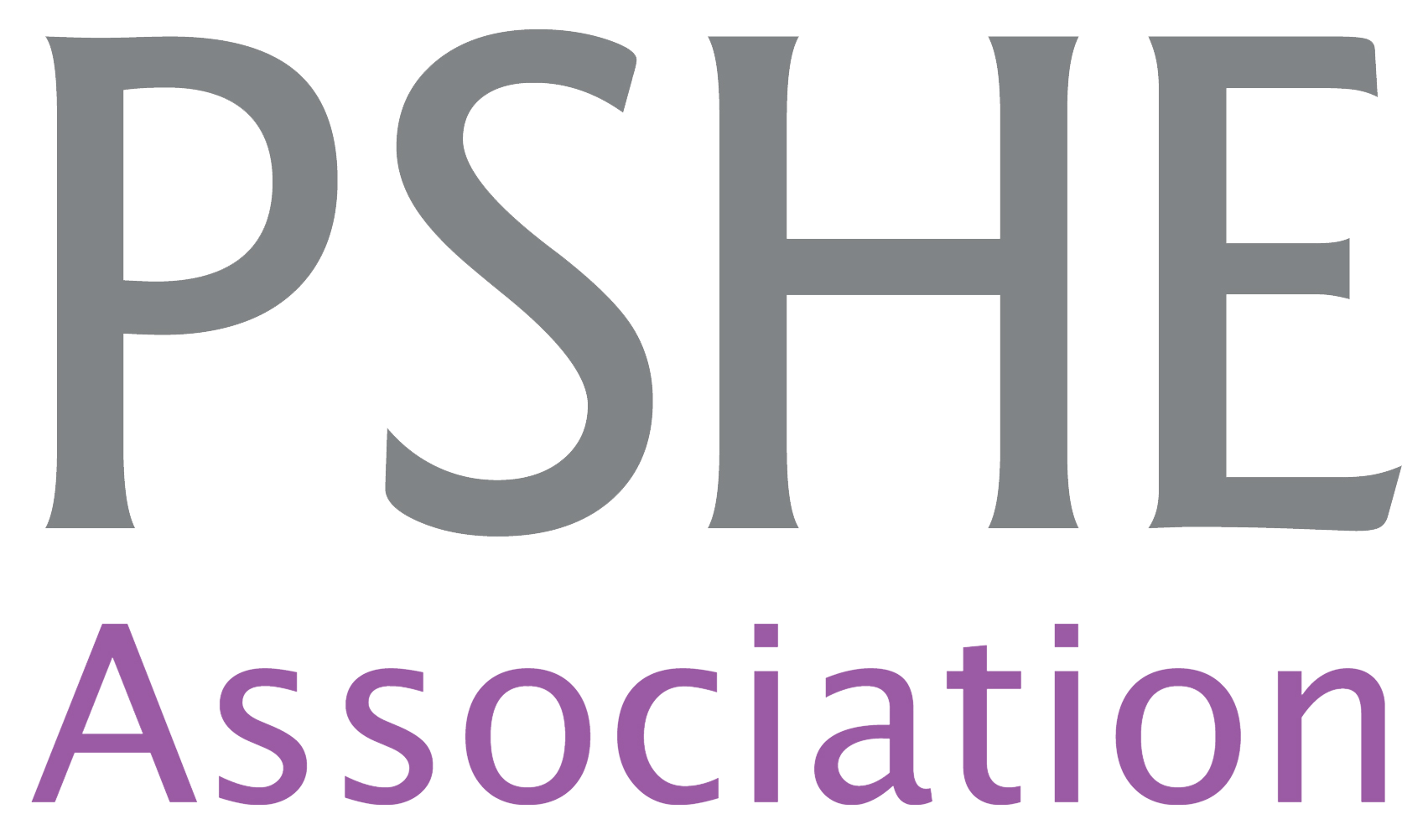
We also adhere to the principles of effective drug education as set out by the PSHE association, for example:
Take a positive approach which does not attempt to induce shock or guilt but focuses on what children and young people can do to keep themselves and others healthy and safe and to lead happy and fulfilling lives – the Life Skills Primary Programme uses facts which are up to date and relevant, and places strong emphasis on the concept of personal responsibility and making safe and healthy choices.
Encourage young people to reflect on their learning and the progress they have made, and to transfer what they have learned to say and to do from one school subject to another, and from school to their lives in the wider community – At Life Skills we see our programme very much as a part of the national curriculum, not as a ‘bolt on’.
We strive to make links between our course and the national curriculum (click here to see how) – our workbook body maps are replicated in biology, links can be made to geography when discussing the origins of drugs and to maths when working out the cost of smoking. Our DAaRT Officers are trained to make these links and to understand school policy and procedure in relation to bullying and which will be highlighted during lessons. The impact of drug use on family, community and society is discussed throughout the course.
FAQ’s
-
What is it?
A course developed to help children years 5 and 6 (Age 9 – 11) acquire a wide array of personal and social skills, including:
- understanding the need to take personal responsibility for ourselves and others
- effective communication and listening
- coping by dealing with pressure and stressful situations
- decision making
- resistance skills
- the identification of risks and consequences, particularly in relation to substance abuse
-
The Curriculum
The programme is delivered over a 10 week period and covers the following subjects:
- Bullying
- Peer Group Pressure
- Use of Social Media
- Choice of Cannabis or Theft
- Use of Illegal Drugs
- Misuse of Legal Drugs
- Misuse of Alcohol
- Smoking
- Choice of knife Crime or Solvent Abuse
- New Psycoactive Substances
Each week builds upon previous knowledge reinforcing the core principles of the programme.
-
Delivery
Your school has the option of various forms of delivery; by one of our uniformed and fully trained DAaRT Officers, by a teacher, or a partnership of the two. Delivery options are:
- 100% DAaRT Officer delivered – including the graduation
- 50/50 Delivery – 6 sessions by DAaRT Officer, 5 by teacher
- Teacher Led Plus – First session and graduation delivered by DAaRT Officer
- 100% Delivery by teacher
If you are based outside the East Midlands and South Yorkshire please give us a call if you want a course involving a DAaRT Officer.
-
Cost
100% DAaRT Officer delivery £32.00 per Child 50/50 – 6 sessions by DAaRT Officer, 5 by teacher £25.00 per child Teacher Led Plus – First and last session by DAaRT Officer £12.00 per child + £124 with an Additional £62 for each extra class 100% Delivery by teacher £13.00 per child -
Whats included?
Along with whichever method of delivery you choose you get:
- Full PDF lesson guides with intended learning outcomes
- Student workbook
- PDF presentation
- Videos featuring real children and their graphic counterparts
- Graduation certificates
- Name Cards
- Access to the evaluation tools
-
How does it work?
The curriculum has been developed in line with current advice and guidance on effective PSHE and drug education in the U.K. by:
- Using interactive methods
- Delivery through a series of 10 structured sessions (usually once a week)
- Delivery by trained facilitators
- Providing opportunities to practice and learn
- Addressing perceptions of risks associated with substance abuse, emphasising immediate as well as longer term consequences
- Dispelling misconceptions regarding the normative nature of and the expectations linked to substance abuse.
-
Does it work?
Our programmes follow the International Standards set out by the United Nations Office on Drugs and Crime (UNDOC). These standards are promoted and used by mentor-ADEPIS. The results of our Quality Standards survey are here.
An independent study in the City of London was undertaken in 2013 and shows positive outcomes. Nottinghamshire County Council’s D-Vibe data consistently reports improved resilience scores of pupils after undergoing a Life Skills Primary programme.
An independent randomised control sample evaluation of the programme in 51 classes (over 1500 pupils) in September and December 2015 has shown statistically significant improvements in children who took part on our Life Skills Primary programme over those that didn’t. The report written by Professor Tseloni of Nottingham Trent University can be found here.